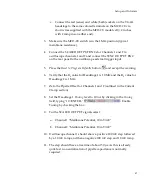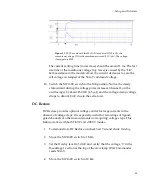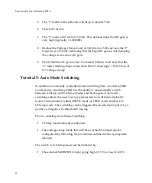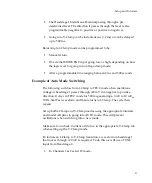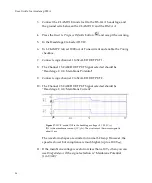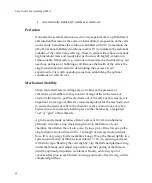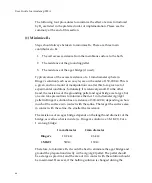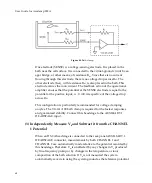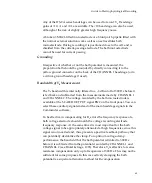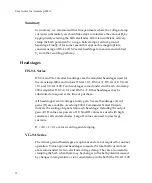
Guide
to
Electrophysiological
Recording
Chapter
4:
Guide
to
Electrophysiological
Recording
The
purpose
of
this
chapter
is
to
provide
practical
advice
on
sharp
microelectrode
recording
with
the
Axoclamp
900A.
It
includes
both
tutorial
‐
style
guidance
and
technical
details
for
reference.
This
information
has
been
distilled
from
textbooks
on
the
subject
(see
References
at
the
end
of
this
manual)
and
from
experienced
researchers
working
in
laboratories
around
the
world.
However,
as
is
the
case
for
all
advice
(and
particularly
that
pertaining
to
research),
the
suggestions
given
here
should
be
taken
as
provisional
until
they
have
been
tested
in
your
own
circumstances.
General
Advice
Chamber
Design
The
tissue
chambers
used
in
many
in
vitro
electrophysiological
experiments
usually
have
four
main
requirements:
A
perfusion
system
for
keeping
the
tissue
alive
and
applying
drugs.
A
method
for
keeping
the
tissue
mechanically
stable.
Optical
properties
suitable
for
observing
the
tissue
and
positioning
electrodes.
59



